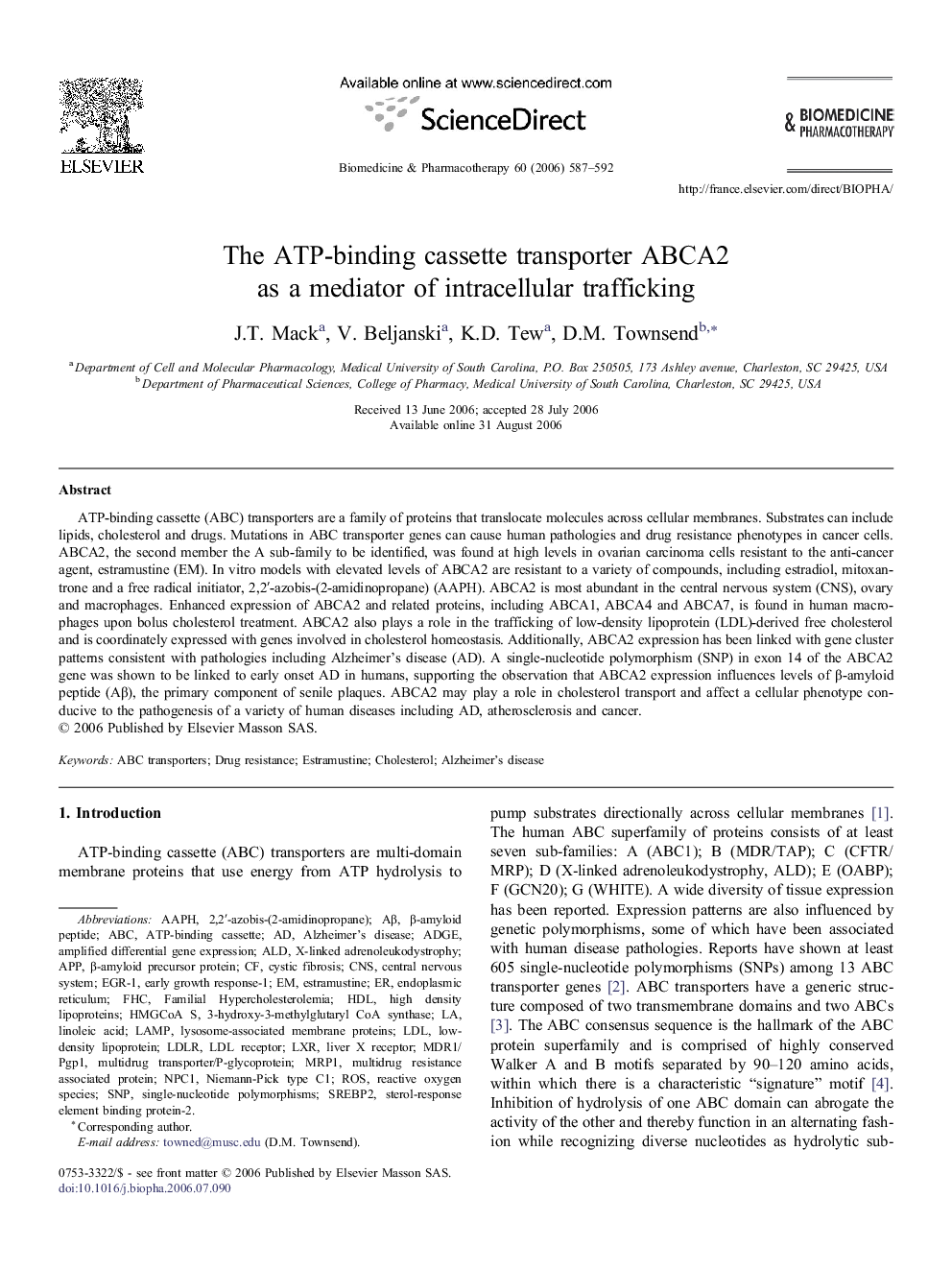| Article ID | Journal | Published Year | Pages | File Type |
|---|---|---|---|---|
| 2525861 | Biomedicine & Pharmacotherapy | 2006 | 6 Pages |
ATP-binding cassette (ABC) transporters are a family of proteins that translocate molecules across cellular membranes. Substrates can include lipids, cholesterol and drugs. Mutations in ABC transporter genes can cause human pathologies and drug resistance phenotypes in cancer cells. ABCA2, the second member the A sub-family to be identified, was found at high levels in ovarian carcinoma cells resistant to the anti-cancer agent, estramustine (EM). In vitro models with elevated levels of ABCA2 are resistant to a variety of compounds, including estradiol, mitoxantrone and a free radical initiator, 2,2′-azobis-(2-amidinopropane) (AAPH). ABCA2 is most abundant in the central nervous system (CNS), ovary and macrophages. Enhanced expression of ABCA2 and related proteins, including ABCA1, ABCA4 and ABCA7, is found in human macrophages upon bolus cholesterol treatment. ABCA2 also plays a role in the trafficking of low-density lipoprotein (LDL)-derived free cholesterol and is coordinately expressed with genes involved in cholesterol homeostasis. Additionally, ABCA2 expression has been linked with gene cluster patterns consistent with pathologies including Alzheimer's disease (AD). A single-nucleotide polymorphism (SNP) in exon 14 of the ABCA2 gene was shown to be linked to early onset AD in humans, supporting the observation that ABCA2 expression influences levels of β-amyloid peptide (Aβ), the primary component of senile plaques. ABCA2 may play a role in cholesterol transport and affect a cellular phenotype conducive to the pathogenesis of a variety of human diseases including AD, atherosclerosis and cancer.
